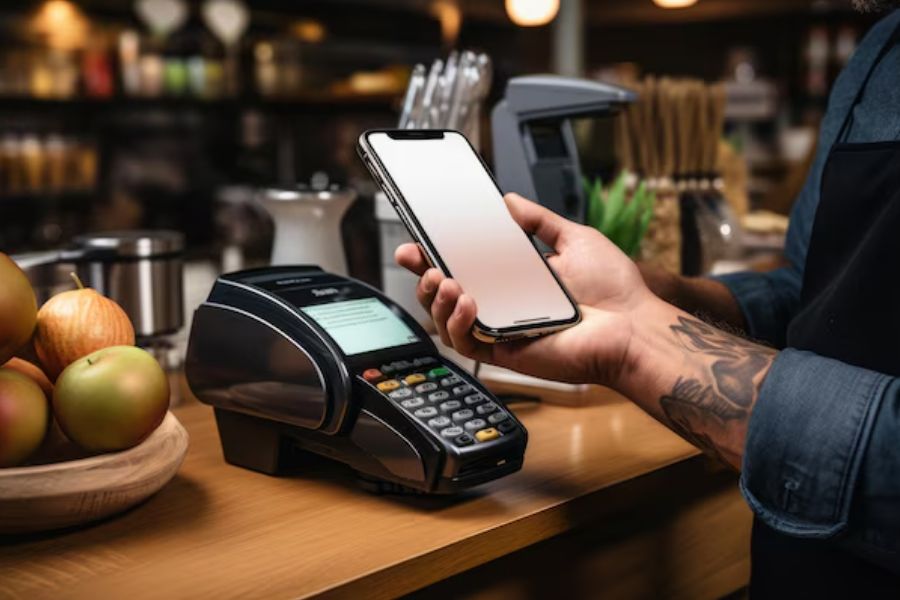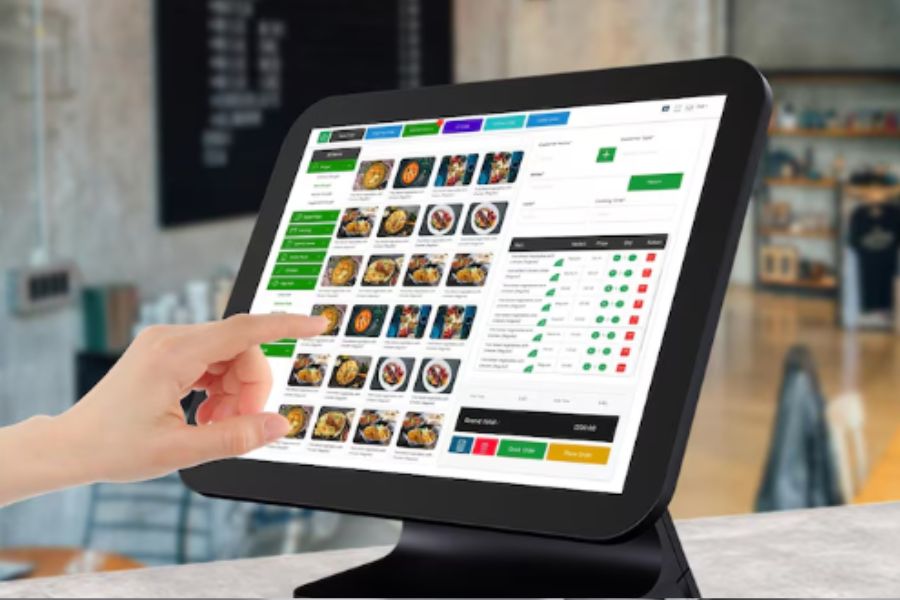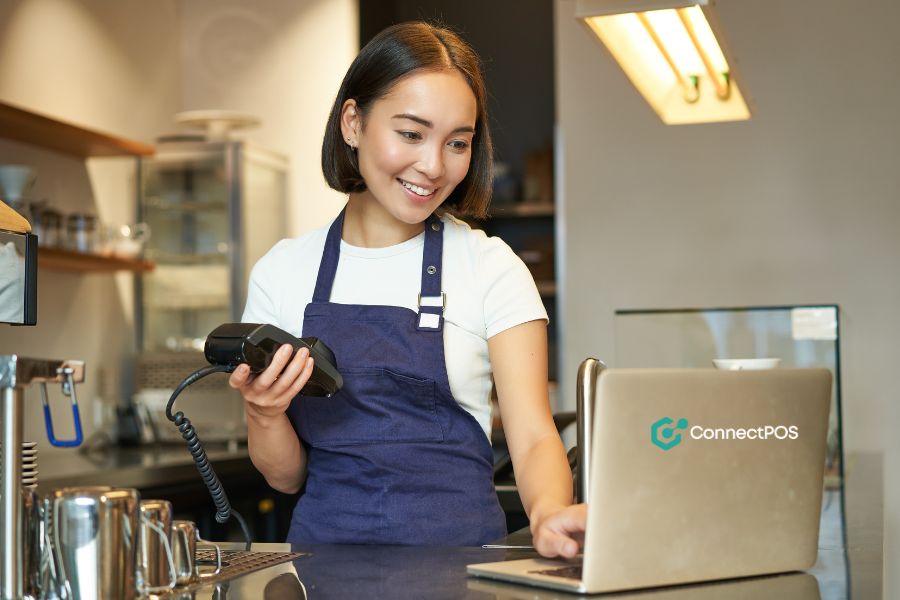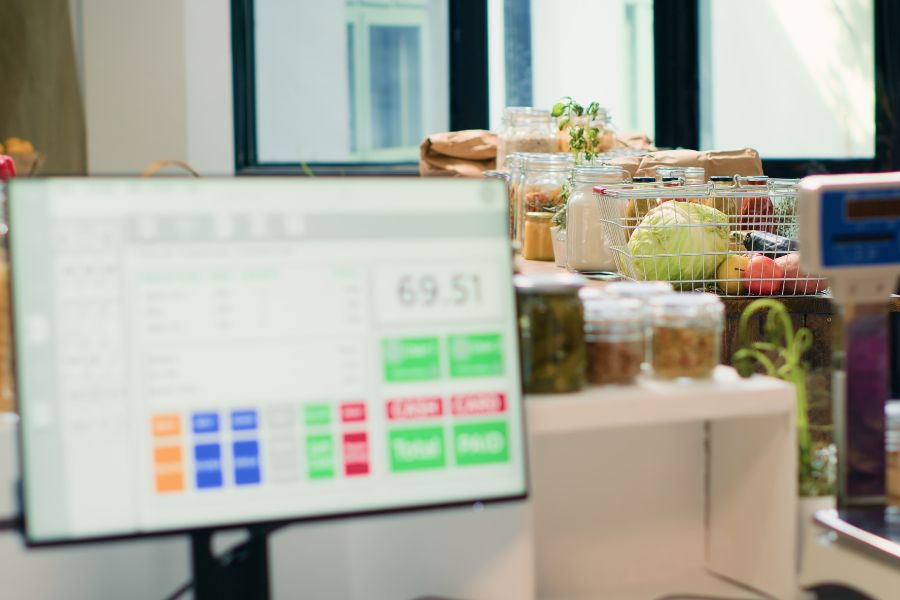Nowadays, POS mobile devices have become increasingly popular. But what is a POS mobile? It’s a portable point-of-sale system that can be used with a smartphone or tablet.
A POS mobile device provides numerous advantages, including easier customer interactions, faster service, and higher customer satisfaction. However, before choosing a mobile POS, it’s important to understand how restaurants are using these systems and which one would be the best fit for your needs. In this article, we will give you the pros and cons of different POS mobile devices to help you make informed decisions about events.
What is POS Mobile for an Event?
POS mobile for an event is a POS solution tailored for event settings. It represents a significant evolution in how transactions are managed in dynamic and often transient environments like trade shows, festivals, and pop-up markets.
Unlike traditional POS systems, mPOS solutions are designed to be highly portable. They leverage the power of smartphones, tablets, and dedicated wireless devices to process sales, manage inventory, and offer seamless payment experiences.
Furthermore, mPOS systems utilize a combination of hardware and software to turn mobile devices into powerful sales tools capable of accepting a variety of payment methods, including credit and debit cards, contactless payments, and even mobile wallets like Apple Pay and Google Wallet.
Pros of Using POS MobileDevices for Events
Mobile POS devices specifically tailored for events streamline operations and enhance customer experiences. They also offer valuable insights for organizers and vendors, playing a pivotal role in the success of any event.
Enhanced Flexibility and Mobility
One of the standout advantages of using mobile POS devices at events is the enhanced flexibility and mobility they afford. Unlike traditional POS systems, which are confined to fixed locations, mobile POS devices allow vendors to conduct transactions wherever their customers are within the event space.
This mobility reduces queues and wait times and enables vendors to capitalize on spontaneous sales opportunities, significantly enhancing efficiency and customer satisfaction across bustling event settings like trade shows and festivals.
Reduced Initial Expenses
Mobile POS devices also offer economic benefits, notably through reduced initial expenses.
Traditional POS systems can require substantial upfront investments in hardware and software. In contrast, mobile POS systems often utilize existing smartphones or tablets, significantly cutting down the need for additional hardware.
Furthermore, many mobile POS providers offer flexible pricing models, such as subscriptions or pay-as-you-go options, enabling event organizers and vendors to scale their usage according to their needs without committing to long-term contracts or large upfront costs.
Enhanced Customer Support
Mobile POS systems enhance customer support capabilities, which contributes to a smoother and more enjoyable attendee experience.
Features like digital receipts, customizable tipping options, and instant transaction confirmations help vendors provide personalized and efficient service.
Additionally, integration with customer relationship management (CRM) systems allows vendors to capture valuable data, offering insights into customer preferences and purchase history. This data can be used to tailor future interactions and enhance customer loyalty and satisfaction.
Improved Data Gathering and Analysis
Lastly, the ability to gather and analyze data is a significant advantage of mobile POS systems at events.
Modern systems provide robust reporting features that track sales, inventory, and customer behavior in real-time. This data is crucial for identifying trends, forecasting demand, and refining marketing strategies, thereby empowering event organizers and vendors to make informed decisions and optimize their operations for future events.
Cons of Using POS Mobile Devices for Events
Mobile POS devices tailored for events bring numerous benefits, yet they also pose certain challenges that event organizers and vendors need to manage effectively.
Dependence on Internet Connection
A significant drawback of mobile POS devices is their reliance on a stable internet connection.
While traditional POS systems might operate offline or with minimal connectivity, mobile POS solutions depend heavily on continuous internet access to process transactions, sync data, and utilize key features. This reliance can lead to operational hurdles and potential disruptions in sales, especially in environments like outdoor festivals or remote locations where internet access is unreliable. Even in urban areas with strong internet infrastructure, unexpected outages or network congestion can impact transaction processing, causing inconvenience for vendors and attendees alike.
Concerns Regarding Security
Security is another concern with mobile POS systems at events, heightened by the rise in cyber threats.
While these systems typically incorporate advanced security measures such as encryption and tokenization to protect payment information, they are still susceptible to hacking, data breaches, and other security threats. Event organizers and vendors must enforce strict security protocols and remain vigilant to protect customer data and prevent financial and reputational damage.
Additionally, maintaining compliance with industry standards like the Payment Card Industry Data Security Standard (PCI DSS) is crucial for adhering to best security practices and regulatory requirements.
Restricted Functionality
Despite their convenience, mobile POS devices sometimes offer more limited functionality compared to full-featured traditional POS systems.
While adequate for basic transaction processing and inventory management, they may lack the more advanced features such as in-depth reporting tools, integrations with third-party software, or customizable workflows. Vendors with complex operational demands or specialized needs may find these limitations restrictive, potentially requiring additional investments in other tools or systems to meet their business requirements fully.
Compatibility Challenges
Finally, compatibility challenges can be significant when implementing mobile POS systems.
These systems often depend on specific types of hardware, operating systems, and software integrations, which may not align with existing infrastructure or preferences. Interoperability issues with different POS systems or payment processors can further complicate integration efforts, leading to potential delays, disruptions, or additional costs.
These challenges are particularly pronounced in multi-vendor environments or when shifting between various event locations, where maintaining a compatible and efficient POS setup is crucial.
ConnectPOS: Your Mobile POS Solution for Events
ConnectPOS proudly presents a cutting-edge mobile POS solution tailored to the unique demands of event management.
It offers a range of robust features designed to significantly enhance operational efficiency, streamline customer transactions, and provide deep insights into sales trends. With its mobility, vendors can effortlessly conduct sales directly on the event floor, reducing queues and enhancing attendee experiences by bringing the checkout process right to the customer, whether at a concert, festival, or conference.
ConnectPOS harnesses the power of existing smartphones or tablets, eliminating the need for expensive hardware investments. Its flexible pricing models cater to events of all sizes, making it an ideal choice for both occasional gatherings and regular large-scale events. ConnectPOS simplifies transactions and transforms sales into opportunities for future engagement with robust data analytics and CRM integration, helping vendors build lasting customer relationships.
FAQs: POS Mobile
- What is the difference between mobile POS and POS?
Mobile POS systems are a subset of traditional Point of Sale (POS) systems but designed to operate on mobile devices like smartphones and tablets. While both types of systems serve the same purpose of processing transactions and managing sales, mobile POS systems offer greater flexibility and mobility, allowing businesses to conduct transactions anywhere, anytime, without being tethered to a fixed location like traditional POS systems.
- What types of businesses can benefit from POS mobile systems?
POS Mobile systems can benefit a wide range of businesses, particularly those that operate in dynamic or mobile environments such as retail stores, restaurants, food trucks, pop-up shops, festivals, trade shows, and delivery services. Any business that values flexibility, mobility, and the ability to accept payments on the go can benefit from implementing a POS Mobile system.
- Are POS mobile systems secure?
Yes, POS Mobile systems are designed with security in mind. They employ various security measures such as encryption, tokenization, and secure data transmission protocols to protect sensitive payment information and ensure transactions are processed securely. Additionally, many POS Mobile systems comply with industry standards such as the Payment Card Industry Data Security Standard (PCI DSS) to further enhance security and reduce the risk of fraud.
- Can POS mobile systems accept different payment methods?
Yes, POS Mobile systems can accept various payment methods, including credit and debit cards, contactless payments (e.g., NFC), mobile wallets (e.g., Apple Pay, Google Pay), and even alternative payment methods like QR codes. The versatility of POS Mobile systems allows businesses to cater to a wide range of customer preferences and stay current with emerging payment technologies.
- Can I use my phone as a POS?
Yes, many POS Mobile systems allow businesses to use their smartphones or tablets as POS devices. By downloading a dedicated POS app and connecting to a compatible card reader or payment terminal, businesses can effectively turn their mobile devices into fully functional POS terminals capable of processing transactions, managing inventory, and more. This flexibility makes POS Mobile systems accessible to businesses of all sizes and budgets, eliminating the need for expensive dedicated hardware.
Conclusion
In sum, the utilization of POS mobile devices for events offers many advantages, but it also has challenges associated with POS mobile devices.
For event organizers and vendors looking to harness the power of POS mobile solutions, ConnectPOS offers a comprehensive suite of features tailored specifically for events. To see how ConnectPOS can elevate your event management experience in real life, reach out to us for personalized assistance and demo.



